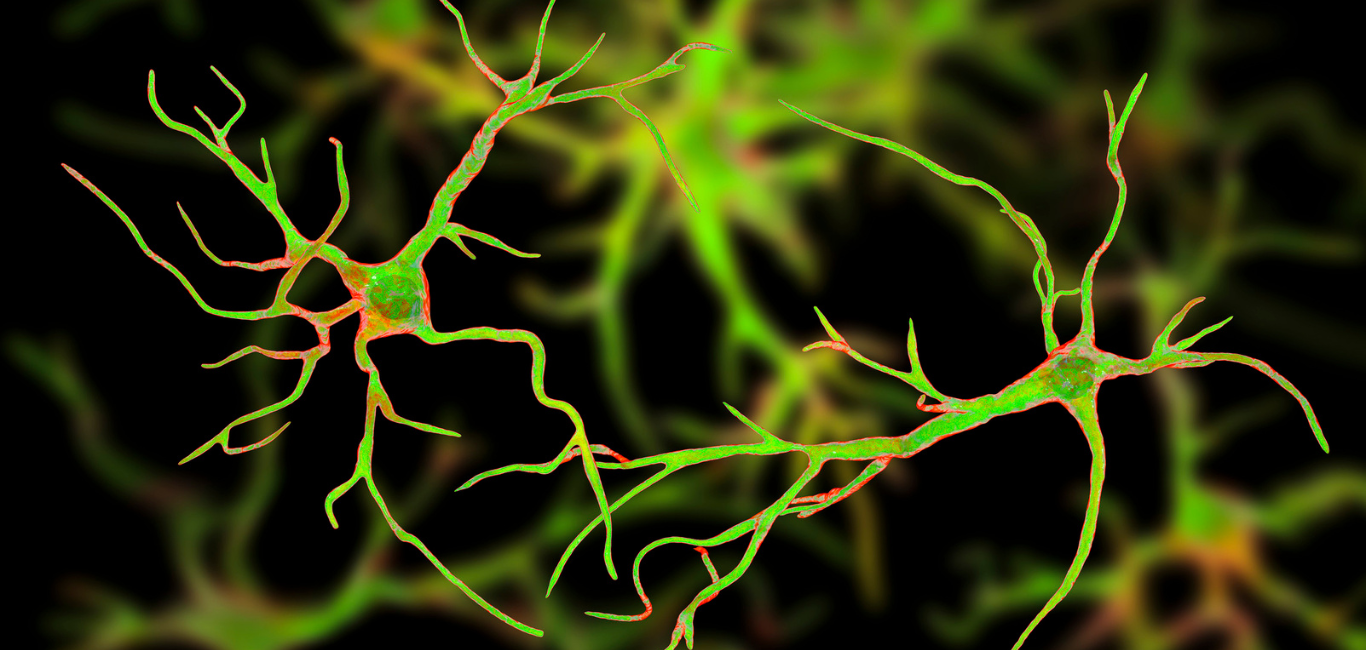
The general belief is that nerve cells or neurons are the primary component of the brain and the nervous system in the human body. Along with synapses (the spaces between neurons) between them, the neurons form a mesh through which electrical signals traverse, much like a relay race. They carry the signals to all parts of the body so the functions within can happen smoothly.
However, is it not interesting to note that this neuronal mesh would collapse without the backing of another type of cells — the glial cells?
While glial cells are abundant in the brain and the nervous system, science has yet to unravel their functions completely. What we do know is that glial cells and the neurons work harmoniously to maintain the overall health of the brain and the nervous system.
The brain’s glue
Named after the Greek word glia, which means glue, glial cells hold the neurons together. Glial cells also outnumber the neurons in the nervous system 3:1.
“Glial cells account for up to 50 per cent of brain cells depending on the species, and they have highly specialised functions. Without them, a brain would not be a brain,” Dr Sarah Jaekel, a neuroscientist from the Institute of Stroke and Dementia Research at the Ludwig Maximilian University, Germany, tells Happiest Health.
However, these support cells are also involved in many diseases ranging from amyotrophic lateral sclerosis (ALS) to solid tumour glioblastomas.
“Research on neurodegenerative disorders has been neuron-centric for decades, and it is only in the last few years that we have understood that glial cells are also affected,” states Dr Jaekal. She thinks understanding how glial cells work will help fix these disorders.
Dr Jaekel says glial cells have remarkable plasticity as they react and repair quickly whenever a brain injury occurs. “This, of course, bears a great potential for therapeutic intervention for many neurological disorders,” she adds.
The many forms of glia
Several microscopic studies have closely examined glial cells and found them in different shapes and forms. Each type performs various functions to maintain the integrity and protect the nervous system. Let us take a peek into the world of glial cells.
Turbo signal boosters – Oligodendrocytes
Electrical signals travel between neurons through the synapses and within a neuron. Most neurons have a protective myelin sheath on the axon. The sheath acts as an insulated wire, helping the signal to move fast within the neuron. Oligodendrocytes are the glial masterminds that provide fatty myelin to neurons. One oligodendrocyte can add myelin to multiple neurons in the brain and spinal cord.

Hence, any problems with oligodendrocytes can manifest in various disorders such as Pelizaeus-Merzbacher disease or multiple sclerosis. “In multiple sclerosis, the major disorder is the loss of oligodendrocytes, so these are primarily affected, [and this] in turn affects the neurons,” says Dr Jaekel.
In nerve cells that branch away from the spinal cord to the peripheral parts of our body, oligodendrocytes become Schwann cells. The difference is that Schwann cells can only add myelin to one neuron at a time.
Some disorders manifesting in the Schwann cells include Charcot-Marie-Tooth disease, Guillain-Barré syndrome, schwannomatosis and leprosy.
Stars in our head – astrocytes
Inside the brain is a constellation of star-shaped glial cells called astrocytes. Elaborate protrusions give them a star shape, and they don many hats: from supporting structures for the blood-brain barrier to maintaining the chemical environment between the neurons.

Astrocytes also stabilise the activity of neurochemicals and help form synapses. Scientists are studying them extensively because they are important in the central nervous system. They hope to find clues to understanding tumours, obsessive-compulsive disorder, ALS, and various forms of dementia.
Dr Jaekel points out that while Alzheimer’s disease is considered a neuronal disorder, astrocytes could also have a role. “Currently, research is going in the direction that glial cells [such as astrocytes] are affected in the beginning, which is then causing neurodegeneration,” she says.
Read more: OCD: clues hidden in the brain’s support cells
Read more: Unveiling how guardian cells drive ALS progression
Microglia – the immune machines
Like the rest of the body, the brain is also susceptible to injuries and infections. But unlike with other parts, immune cells face many barriers to reaching the brain. To counter this drawback, the brain is capable of protecting itself, thanks to microglia.

This set of glial cells are so tiny they cannot be seen through a microscope, hence the name. When there is damage to brain cells, microglia multiply and rush to the injury site. They also remove all unwanted proteins and waste from the injury site and perform regular housekeeping functions.
Dr Jaekel says, “Microglia are considered to play an important role in amyloid plaque clearance in Alzheimer’s Disease.” Several studies have also found that microglia help repair DNA damage in neurons and help maintain the integrity of the synapses.
Read more: Secret allies: the brain and the immune system
“If glial cells are sick, neurons cannot be healthy, as they support each other,” says Dr Jaekel, summarising the role of glial cells in the brain. She says that all cells of the brain work in tandem to ensure its proper functioning, and it would be naive to assume that in disease conditions, only one cell type is affected while the others are not.

















